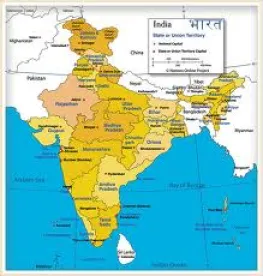Over three months have passed since Indian Prime Minister Narendra Modi’s visit to the United States, and the economic relationship between the United States and India continues to strengthen over time. On December 3rd, the Modi government announced the creation of a panel to help fast-track investment proposals coming from the United States. The panel will supposedly assist U.S. investors in overcoming “bottlenecks” that obstruct their attempts to invest in India, and is consistent with India’s recent efforts to create a more investor-friendly environment. The Prime Minister’s announcement comes in anticipation of President Barack Obama’s visit to India in late January, when he will become the first US president to be the chief guest at India’s Republic Day celebrations.
In recent years, India has taken a back seat to China in terms of economic growth, and foreign investors have approached the country with caution. Investors have cited many reasons for their reluctance to enter the Indian market, including complications with obtaining environmental clearances, problems in land acquisition, procedural delays, and poor infrastructure.
However, the prospects for foreign investors in India seemingly improved when the Bharatiya Janata Party (“BJP”) seized control of the national government in the May elections. Despite some backtracking at the WTO, the PM Modi has used the first six months of his term to make seven international trips, largely in an attempt to strengthen economic ties with the international community. These includes his September visit to the United States, where Modi publicized his “Made in India” campaign in an effort to attract U.S. business investments into India. Modi’s PR campaign provides a reason for optimism, but international investors should remain focused on the policies actually implemented, ensuring that rhetoric is followed by concrete action.
While it is too early in the new Indian government’s term to draw definitive conclusions, Modi’s first budget proposal signaled an intention to attract foreign investment by extending the withholding tax, treating income as capital gains, and introducing safe harbor rules for foreign investors. On December 3rd, the government also announced a policy eliminating a requirement that investments in the construction sector remain in India for two years after a project is completed. The policy also reduces the minimum capital investment requirement from $10 million to $5 million.
The establishment of the fast-track panel offers further evidence that India’s economy will be more accessible to foreign businesses. The panel seeks, among other things, to increase the amount of American investment in green manufacturing technologies, which may create investment opportunities for clean energy companies. It will be chaired by the Secretary of the Department of Industrial Policy and Promotion and will consist of representatives from government agencies in charge of a broad range of industries. Agencies represented on the panel include the Department of Pharmaceuticals, the Department of Telecommunications, the Department of Defense Production, and the Department of Electronics and Information Technology.
The multidisciplinary representation on the panel provides prospective investors with reasons for optimism. The panel has been instructed to interact with American companies and Indian government agencies to simplify the investment process. If, as envisioned, these representatives are able to serve as effective liaisons between American companies and Indian state and national government ministries, then many of the aforementioned bureaucratic hurdles may be become less daunting.
Analysts remain optimistic about the investment potential of India. Goldman Sachs has projected that India’s GDP growth will eclipse that of China in 2016, mostly as a result of the reforms aimed at attracting foreign investment in India and a slowing economy in the midst of President Xi Jinping’s economic reform agenda across the border. Businesses should continue to monitor the Modi administration’s economic policies as the current reforms are hopefully just the start of a larger trend.
This article was written with contributions from Aseem Padukone.



 />i
/>i

